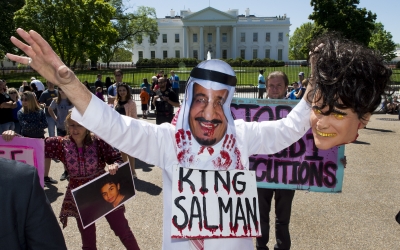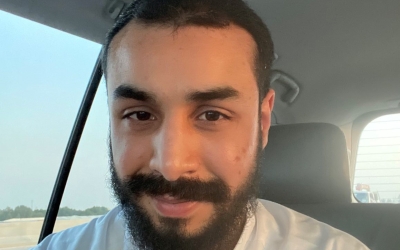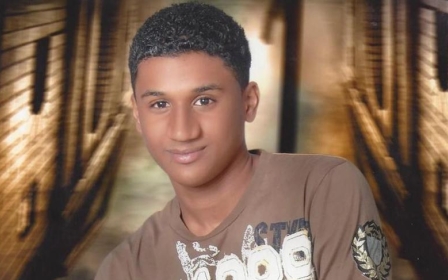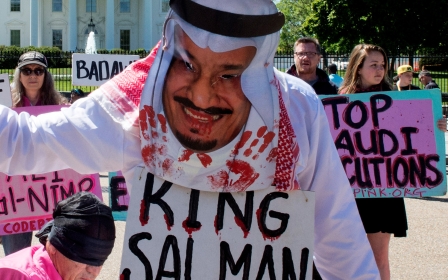Saudi court overturns death sentence for man convicted as minor, family says
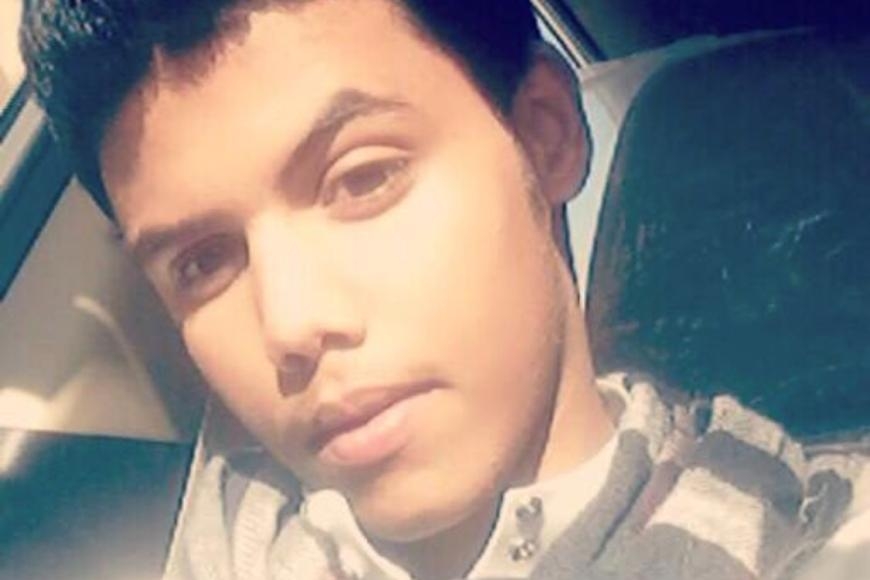
Saudi Arabia's Supreme Court has overturned a death sentence for Abdullah al-Huwaiti, a man who was convicted for crimes reportedly committed when he was a minor, his mother has said.
The court has not yet published its ruling, but Huwaiti's mother reported the news in a tweet on Wednesday.
"The Supreme Court overturned the judgement on behalf of my youngest son, Abdullah al-Huwaiti. Thank you everyone who stood with me and supported me," she said.
Saudi law stipulates that there must be a retrial in his case, however, details about the proceedings remain to be determined.
In a statement on Thursday, Reprieve, a human rights group based in London, called on the public prosecutor to withdraw its request for the death penalty and for Huwaiti's "torture-tainted confession to be ruled inadmissible as evidence".
In May 2017, Huwaiti - who was 14-years-old at the time - was detained by police officers from his home in the northwestern city of Tabouk, and convicted of allegedly shooting a policeman during a robbery of a jewellery store.
He was held incommunicado for four months and denied access to a lawyer. He was interrogated under torture, including being whipped with electrical wire and was beaten to the point that he could not walk for days, according to Reprieve.
In March, Human Rights Watch said in a report that Huwaiti and five co-defendants told the court that the interrogators coerced their confessions through torture or the threat of it.
Tabouk's criminal court sentenced Huwaiti to death on 30 October 2019. He was 17 at the time. The court had used his false confession as the prime evidence in his conviction, even though Huwaiti had an alibi supported by statements from his mother, friends and CCTV footage that put him 200km away from the scene of the crime.
Concerns remain
Last April, Saudi King Salman issued a royal decree ending death sentences for crimes committed as a minor, instead making the maximum sentence 10 years in a juvenile detention facility.
Still, rights groups have raised concerns about its implementation and previously warned that several youths still face the death penalty.
"This is an opportunity for Saudi Arabia to show it is serious about abolishing the death penalty for childhood crimes," Maya Foa, director of Reprieve, said in a statement.
"Abdullah was 14 years old at the time of the alleged offence and should never have been facing a death sentence."
Despite the Supreme Court's ruling, Saudi legal specialist Taha al-Hajji, of the European Saudi Organisation for Human Rights, said concerns for Huwaiti's life remain.
"Our experience with the judiciary in Saudi Arabia shows that this step is not sufficient to protect his life," said Hajji, adding that the public prosecution may still seek the death sentence again because the case file is still open.
"Other minors are still at risk of execution. We are afraid of flaws in the law and manipulation of the ages of the prisoners to justify killing them, as happened in the case of Mustafa al-Darwish," he said.
Darwish, who was arrested in 2015, was executed in June over charges relating to protests which he took part in when he was 17 in Saudi Arabia's Eastern Province.
Middle East Eye delivers independent and unrivalled coverage and analysis of the Middle East, North Africa and beyond. To learn more about republishing this content and the associated fees, please fill out this form. More about MEE can be found here.


